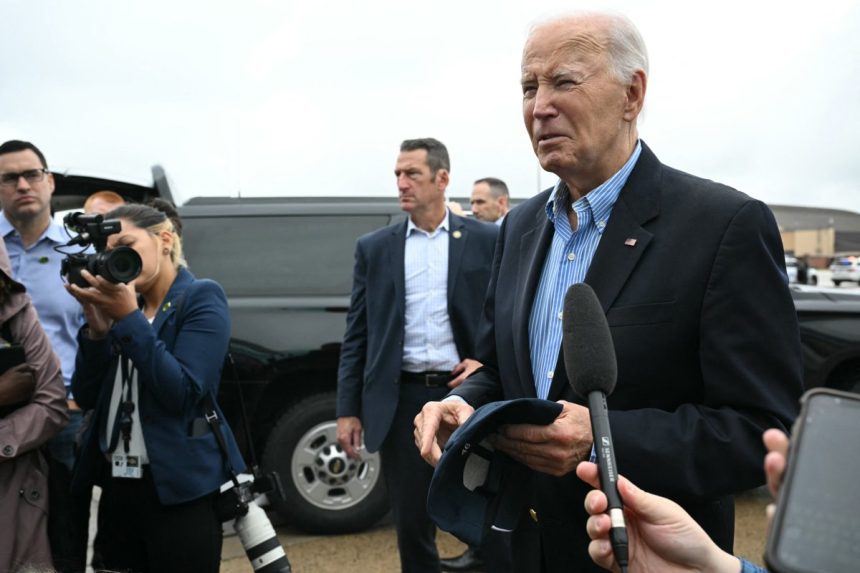On Wednesday, U.S. President Joe Biden made it clear that he would not support any Israeli military strike on Iran’s nuclear sites in response to Iran’s recent missile attack, urging Israel to respond “proportionally.”
His remarks came a day after Iran launched over 180 ballistic missiles at Israel, an action Biden had previously downplayed as “ineffective.” In contrast, Israeli Prime Minister Benjamin Netanyahu vowed that Iran would face consequences for its aggression.
Speaking to reporters before boarding Air Force One, Biden emphasized the need for a measured response from Israel, indicating that while the G7 nations acknowledge Israel’s right to defend itself, they collectively agreed that any retaliation should be proportional.
“We’ll be discussing with the Israelis what they’re planning to do, but all seven of us (G7 nations) agree that they have a right to respond—but they should respond proportionally,” Biden said.
This missile barrage marked the most significant attack by Iran on Israel to date, intensifying the already volatile situation in the Middle East. Some analysts predict Israel’s response could be more aggressive than it was during similar Iranian attacks in April, speculating that Israel might target Tehran’s nuclear or oil facilities as retaliation.

When asked if the U.S. would back Israel should it decide to strike Iran’s nuclear sites, Biden firmly stated, “The answer is no.” He added that further sanctions would be imposed on Iran, and he would soon be consulting with Prime Minister Netanyahu about Israel’s next steps. “Obviously, Iran is way off course,” Biden remarked, signaling Washington’s deep frustration with Tehran’s recent actions.
Meanwhile, U.S. Deputy Secretary Kurt Campbell acknowledged the precariousness of the situation, describing the Middle East as being on a “knife’s edge.”
Speaking at a virtual event organized by the Carnegie Endowment for International Peace, Campbell reiterated that the U.S. views Iran’s missile attack as “deeply irresponsible” and underscored the need for a measured response to prevent further escalation. “We’ve been working to align our stance with Israel on their response,” Campbell said, while cautioning against a full-scale military operation, especially on the northern front.
Currently, the Israeli army is engaged in fierce combat along its northern border with Hezbollah, the Iran-backed militia in Lebanon. On Wednesday, eight Israeli soldiers were killed in clashes—the highest number of Israeli military casualties on the Lebanon front in the past year of ongoing border skirmishes with Hezbollah.
Iran, for its part, declared on Wednesday that its missile offensive—the largest assault it has ever carried out against Israel—was over, unless provoked further. The situation, however, remains tense as both nations continue to navigate this volatile episode.

Washington’s efforts are now focused on preventing a broader escalation that could endanger not just Israeli and U.S. interests, but also stability in the region as a whole.
While Biden’s firm stance against supporting Israeli strikes on Iran’s nuclear facilities is intended to avoid further destabilizing the region, both Israel’s resolve to retaliate and Iran’s provocations keep the prospect of a wider conflict looming.
As the U.S. administration continues to impose sanctions on Iran and work closely with its Israeli ally, the international community watches closely, aware that any misstep could ignite a much larger confrontation in the Middle East.

